Men's testosterone levels decrease with age(1), and diminished testosterone levels cause a number of side effects(2) in the body.
Some men undergo testosterone therapy to address low testosterone levels after seeking a doctor's advice, diagnosis, or treatment plan.
Another popular choice among men is over-the-counter testosterone boosters.
These are commonly used with testosterone replacement therapy (TRT) or as an alternative stand-alone regimen.
If you're experiencing similar symptoms of low T and considering taking a testosterone supplement, read on and learn more about them.
What Are Testosterone Boosters?
Testosterone boosters are dietary supplements(3) marketed to increase total or free testosterone levels and counter the side effects of low T.
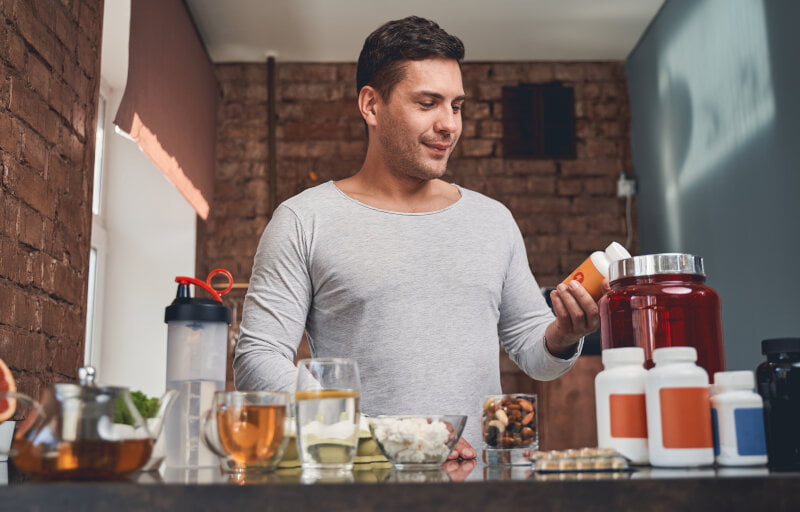

Most often, testosterone supplements are chosen as an alternative if TRT is impossible after seeking a doctor's advice, diagnosis, or treatment plan.
Another reason why people use these pills is for their physical benefits. They believe it can stimulate muscle growth, increase muscle mass, and improve energy levels and physical performance.
How Do Testosterone Boosters Work in the Body?
Testosterone boosters are composed of natural ingredients that help the body naturally increase its testosterone production.
With the increased levels of this male sex hormone, users can expect improvements in sexual function and sex drive, bone density, muscle growth, fat distribution, body hair, physical strength, and sperm production.
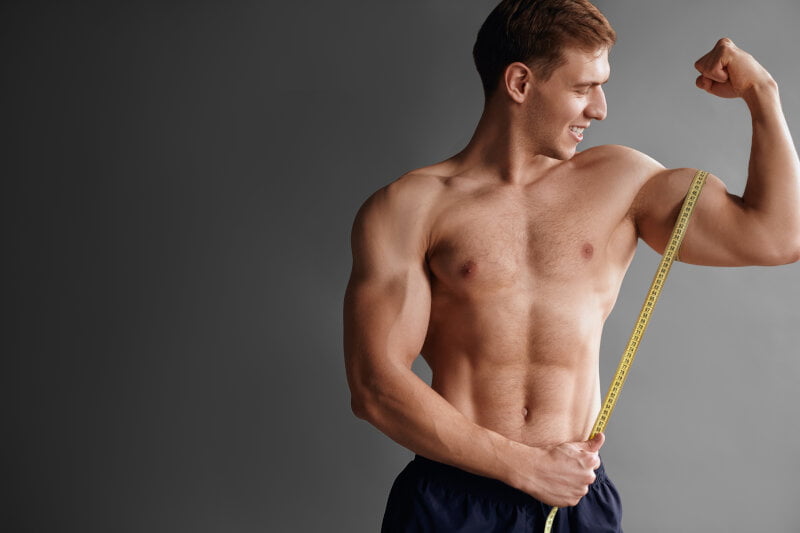

However, the way testosterone boosters affect body functions can vary, depending on factors such as:
- Tolerance of an individual to specific ingredients
- The potency of ingredients found in the supplements
- Diet, exercise, and lifestyle
Although the popular ingredients in many supplements are believed to improve body functions and combat low testosterone, academic literature regarding these claims is still scarce.
For example, it's believed that higher serum levels of bioavailable/free testosterone are produced by taking testosterone boosters.
However, research(4) published in the World Journal of Men's Health by the Korean Society for Sexual Medicine shows that there is little evidence supporting the efficacy of testosterone boosters.
What Ingredients are Usually Found in Testosterone Boosters?
Despite having little support from academic scholars, testosterone boosters continue to gain public interest.
Brands claim that the ingredients they include in their formula can boost testosterone levels.
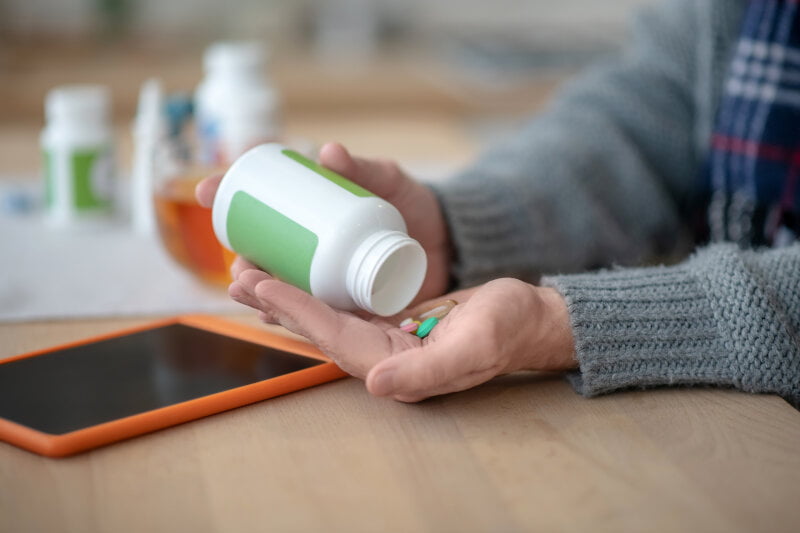

One thing consumers look for when selecting effective testosterone boosters is the androgenic component and ingredients that stimulate higher testosterone production in the body.
Every brand has its own specific formula depending on the results they aim to reach.
Still, most testosterone boosters share these common herbal ingredients, vitamins, minerals, and micronutrients:
- Tribulus Terrestris - Tribulus Terrestris is believed to help with many health conditions(5), including male and female sexual dysfunction.
- Fenugreek - Fenugreek extract(6) was seen to have androgenic effects in men, showing significant results on increased serum testosterone levels.
- Ashwagandha - Ashwagandha(7) is used in Ayurvedic medicine, with their belief in its ability to improve muscle strength, endurance, vigor, and overall health. Similarly, it's associated with natural testosterone production, given the increase in testosterone levels and Dehydroepiandrosterone sulfate (DHEA-S), another important androgen hormone.
- Maca - A study(8) showed that maca supplementation improved the sex drive of men. However, it also showed no significance in test production and doesn't directly relate to the increase in testosterone levels.
- Vitamin B6 - Vitamin B6 plays a major role in boosting testosterone levels. It's responsible for regulating(9) sex hormone levels in the body, reducing prolactin to prompt the hypothalamus to increase test production, and co-factoring dopamine synthesis to increase testosterone levels.
- Vitamin D - Vitamin D targets the male reproductive tissues. Literature(10) shows that vitamin D supplementation increases men's bioavailable, free, and total testosterone levels.
- Zinc - Zinc deficiency(11) is believed to be one of the culprits of hypogonadism, thus affecting men's health. Supplementing with this mineral in healthy aging adults has been shown to play a vital role in increasing serum testosterone levels.
- Magnesium - Magnesium supplementation(12) also increases free and total testosterone levels. Similarly, it showed that the increase in testosterone levels is more significant among physically active individuals than those who live a sedentary lifestyle.
- Boron - Boron(13) has been shown to increase the concentration of testosterone in the body and help regulate testosterone and estrogen levels. In addition, boron supplementation was proven to improve magnesium absorption. This micronutrient is similarly linked to bone growth, wound healing, vitamin D deficiency prevention, and improved psychological function.
- D-aspartic Acid - D-aspartic acid principally occurs in the endocrine system. A systematic review(14) of both animals and humans revealed how D-aspartic acid increases blood testosterone levels. Yet, its effect on men's health has been inconsistent. While there's a possibility that it has a similar effect, additional human studies are still needed.
Health Benefits of Testosterone Boosters
Testosterone deficiency is one of the most pressing health issues that men face. Hence, many are eager to combat testosterone deficiency by adding effective testosterone boosters to their diet.
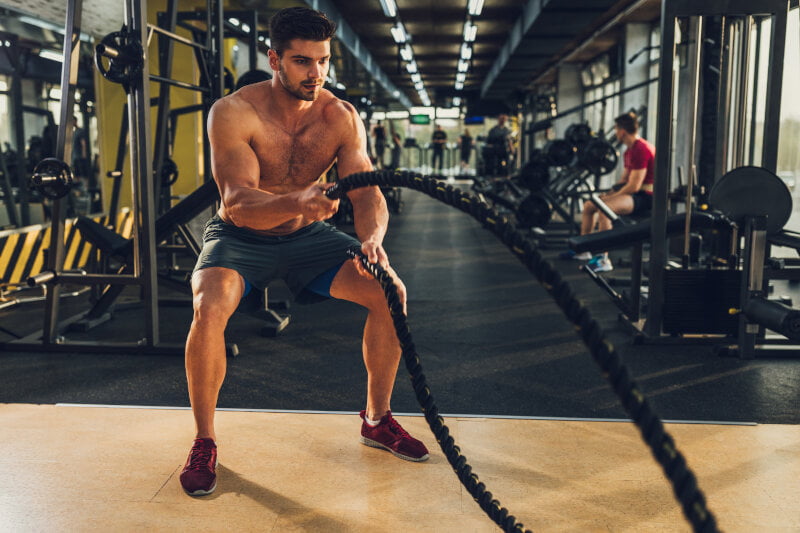

In addition to the claims that testosterone-boosting supplements can increase testosterone levels and reverse the effects of low T, the following benefits are also expected from taking them:
- Increased energy levels - One of the most claimed benefits(15) of taking testosterone boosters is increased physical, mental, and social energy levels. Most men who participated in the study reported experiencing positive effects in these areas after taking prescribed testosterone boosters.
- Better sexual performance - Libido is also said to increase with natural testosterone-boosting supplements. Also, a study(16) has shown that an increase in testosterone would help with erectile function.
- Denser bones - A few ingredients mentioned in the previous section are believed to promote bone growth and improve bone density. It was also shown that an increase in testosterone level conversely increased bone density and strength(17).
- Increased lean muscle mass - Men are fond of using natural testosterone boosters to increase lean muscle mass. Most athletes and gym goers who are actively engaging in High-Intensity Interval Training (HIIT) like to pair these testosterone-boosting pills with their diet. A study(18) shows that testosterone is responsible for increasing muscle mass and muscle protein synthesis.
- Improved mood - Low testosterone levels may lead to irritability or bad moods. Hence, healthy t levels will help with this. A study(19) shows that an increase in testosterone exhibited minor mood changes in men.
What is the Best Way to Maximize Testosterone Booster Benefits?
Taking testosterone supplements alone will not suffice.


If you wish to boost your testosterone efficiently and maximize the capabilities of your natural supplements, we suggest you do the following:
- Get an adequate amount of sleep - Sleep deprivation(20) will cause your testosterone levels to drop. Hence, it's important that you get enough sleep.
- Eat right - Maintaining a balanced diet will help promote physical and mental health. Overeating(21) will mess up your hormones, especially if you are physically active.
- Exercise regularly - Studies(22) prove that physically active people have more T than those living a sedentary lifestyle.
- Avoid stress - Stress(23) is another culprit for low testosterone. Hence, minimizing stressors is crucial to maximizing the benefits of your natural supplements.
- Avoid vices - Drugs and alcohol abuse has been associated with low T levels since they can disrupt hormonal reactions, cause cell damage, and negatively affect the glands in the male reproductive system(24).
Potential Risks and Side Effects of Testosterone Boosters
With their natural components, testosterone boosters are generally safe to take. However, consumers need to be cautious of potential risks and side effects.
In some cases, the body cannot tolerate ingredients in particular supplements when consumed in the wrong amounts. This may result in unwanted side effects, such as abdominal pain due to liver injury, according to a case study(25).


This article by the International Journal of Health Sciences showed that the supplement the patient tested increased hepatic enzymes beyond the normal range, which led to liver damage.
However, more research is needed across a longer period and with a larger test population to find conclusive evidence.
Additionally, consumers should also be careful of the risks and side effects of prescription testosterone boosters (despite some brands being approved by the Food and Drug Administration(26)).
The FDA emphasizes that testosterone replacement therapy should only be taken by men who suffer from hypogonadism (abnormally low testosterone levels).
They also mentioned that men who abuse prescription testosterone boosters face the risk of heart disease and eventual withdrawal symptoms (i.e., depression, fatigue, irritability, loss of appetite)
When testosterone concentration in the body exceeds healthy levels, whether from over-the-counter or prescription T-boosters, it may lead to:
How to Take Testosterone Boosters? (Time & Dosage)
The appropriate dose of testosterone food supplements would depend on the brand. We suggest you review the directions printed on the packaging.
As for “when”, many users recommend taking them in the morning and before bedtime. Most brands suggest similar guidelines for their supplements.
How Long Does It Take to See Results from Testosterone Boosters?
Each body is unique. Hence, the timeframe for results would differ between individuals.
Some may see results in a few weeks, while others may need to wait a few months to see the testosterone booster's effects.
What are the Best Testosterone Boosters on the Market?
The most reviewed testosterone supplement on the market is TestoPrime. Many people claim that it can naturally increase testosterone and thus improve overall health.
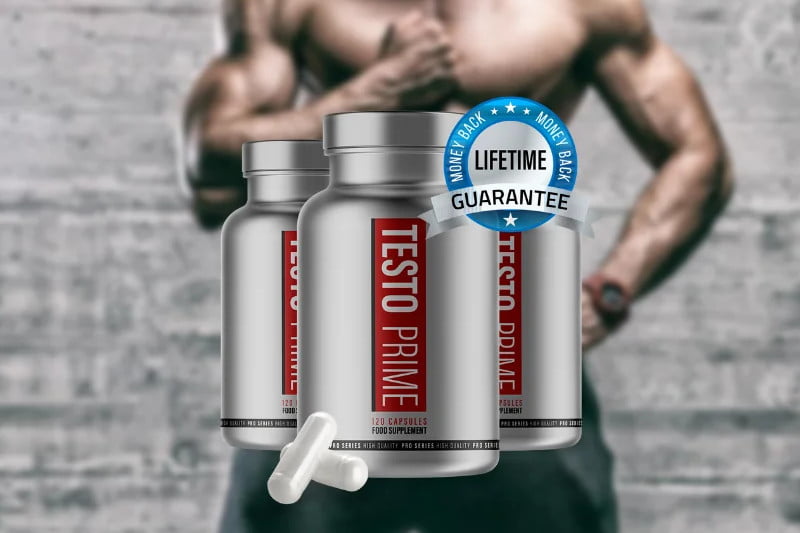

Similar well-reviewed T-boosters are TestoGen, Testo-Max, Prime Male, and TestRX.
FAQ:
Let's answer a few more questions before wrapping things up:
What does a testosterone booster do?
Testosterone boosters are meant to help increase your test levels and reverse the side effects of low T. In addition, you'll experience physical and mental changes, which include increased muscle mass and bone density, an improved mood, and reduced stress.
What happens when you take testosterone supplements?
Many claim that they experience an increase in sexual desire and performance after taking testosterone boosters. Some also experience increased energy and improved physical performance.
How can I raise my testosterone levels naturally?
You can raise your test levels naturally by maintaining an active and healthy lifestyle, eating the right food, minimizing stress, getting enough sleep, and avoiding alcohol and drug abuse. Natural testosterone boosters can also help you in this matter.
What causes men's testosterone to fall?
Most cases of low testosterone are caused by old age and medical conditions like primary and secondary hypogonadism. Sleep deprivation, physical inactivity, overeating, drug and alcohol abuse, and stress, can also cause low T.
What is the safest testosterone booster and what is the strongest testosterone booster?
Many people view TestoPrime as the "safest and strongest" testosterone booster on the market. It claims to enhance cognition and mood, burn fat, strengthen bones, and increase muscle mass.
Where to begin with T-boosting supplements?
Before anything else, it will help if you seek a doctor's advice, diagnosis, or treatment plan to address your reproductive health issues. Once you're given the go signal, you can start taking your supplements.
Conclusion: Are Testosterone Boosters Worth It?
Testosterone boosters are definitely worth a shot, especially if you wish to reverse the side effects of low testosterone.
They can help you increase your testosterone, and they can bring a host of health benefits if taken properly.
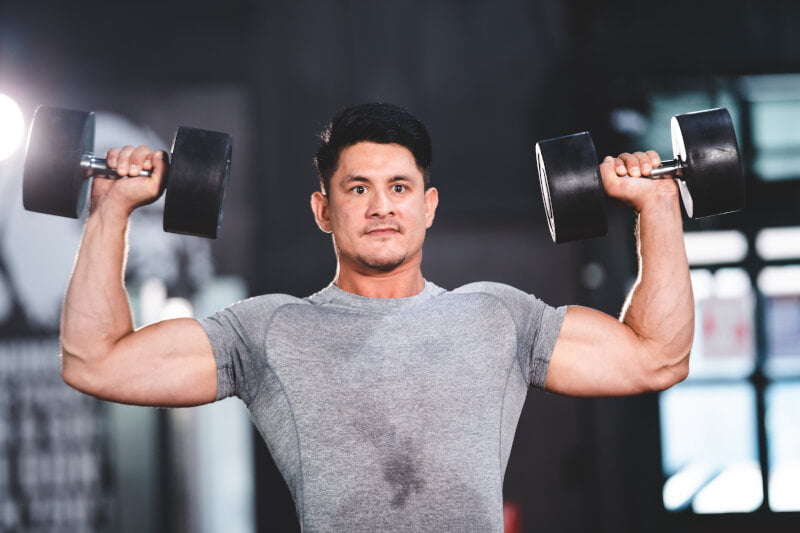

Generally, T boosters are safe, and their natural ingredient formulas promote overall wellness in men and women.
By stimulating testosterone production in your system, you'll be able to build more muscle, burn body fat, improve your mood, reduce stress, and enhance your sexual performance and libido.
- Harman, S M et al. “Longitudinal effects of aging on serum total and free testosterone levels in healthy men. Baltimore Longitudinal Study of Aging.” The Journal of clinical endocrinology and metabolism vol. 86,2 (2001): 724-31. doi:10.1210/jcem.86.2.7219↩
- Araujo, Andre B et al. “Prevalence of symptomatic androgen deficiency in men.” The Journal of clinical endocrinology and metabolism vol. 92,11 (2007): 4241-7. doi:10.1210/jc.2007-1245↩
- Aguilar-Morgan, Adrian Andres, et al. “Testosterone Boosters: How Real Are Their Effects?” Androgens: Clinical Research and Therapeutics, vol. 3, no. 1, Mary Ann Liebert, Inc., publishers, Dec. 2022, pp. 69–76. doi.org10.1089/andro.2022.0007.↩
- Clemesha, Chase G et al. “'Testosterone Boosting' Supplements Composition and Claims Are not Supported by the Academic Literature.” The world journal of men's health vol. 38,1 (2020): 115-122. doi:10.5534/wjmh.190043↩
- Bokelmann, Jean M. “72 - Tribulus (Tribulus Terrestris): Fruit, Above-Ground Parts, Root.” Medicinal Herbs in Primary Care, edited by Jean M. Bokelmann, Elsevier, 2022, pp. 609–614. doi.org10.1016/B978-0-323-84676-9.00072-6.↩
- Mansoori, Anahita et al. “Effect of fenugreek extract supplement on testosterone levels in male: A meta-analysis of clinical trials.” Phytotherapy research : PTR vol. 34,7 (2020): 1550-1555. doi:10.1002/ptr.6627↩
- Lopresti, Adrian L et al. “A Randomized, Double-Blind, Placebo-Controlled, Crossover Study Examining the Hormonal and Vitality Effects of Ashwagandha ( Withania somnifera) in Aging, Overweight Males.” American journal of men's health vol. 13,2 (2019): 1557988319835985. doi:10.1177/1557988319835985↩
- Gonzales, G F et al. “Effect of Lepidium meyenii (MACA) on sexual desire and its absent relationship with serum testosterone levels in adult healthy men.” Andrologia vol. 34,6 (2002): 367-72. doi:10.1046/j.1439-0272.2002.00519.x↩
- Allgood, V E, and J A Cidlowski. “Vitamin B6 modulates transcriptional activation by multiple members of the steroid hormone receptor superfamily.” The Journal of biological chemistry vol. 267,6 (1992): 3819-24.↩
- Pilz, S et al. “Effect of vitamin D supplementation on testosterone levels in men.” Hormone and metabolic research = Hormon- und Stoffwechselforschung = Hormones et metabolisme vol. 43,3 (2011): 223-5. doi:10.1055/s-0030-1269854↩
- Prasad, A S et al. “Zinc status and serum testosterone levels of healthy adults.” Nutrition (Burbank, Los Angeles County, Calif.) vol. 12,5 (1996): 344-8. doi:10.1016/s0899-9007(96)80058-x↩
- Cinar, Vedat et al. “Effects of magnesium supplementation on testosterone levels of athletes and sedentary subjects at rest and after exhaustion.” Biological trace element research vol. 140,1 (2011): 18-23. doi:10.1007/s12011-010-8676-3↩
- Pizzorno, Lara. “Nothing Boring About Boron.” Integrative medicine (Encinitas, Calif.) vol. 14,4 (2015): 35-48.↩
- Roshanzamir, Farzad, and Seyyed Morteza Safavi. “The putative effects of D-Aspartic acid on blood testosterone levels: A systematic review.” International journal of reproductive biomedicine vol. 15,1 (2017): 1-10.↩
- Straftis, Alex A, and Peter B Gray. “Sex, Energy, Well-Being and Low Testosterone: An Exploratory Survey of U.S. Men's Experiences on Prescription Testosterone.” International journal of environmental research and public health vol. 16,18 3261. 5 Sep. 2019, doi:10.3390/ijerph16183261↩
- Rizk, Paul J et al. “Testosterone therapy improves erectile function and libido in hypogonadal men.” Current opinion in urology vol. 27,6 (2017): 511-515. doi:10.1097/MOU.0000000000000442↩
- Snyder, Peter J et al. “Effect of Testosterone Treatment on Volumetric Bone Density and Strength in Older Men With Low Testosterone: A Controlled Clinical Trial.” JAMA internal medicine vol. 177,4 (2017): 471-479. doi:10.1001/jamainternmed.2016.9539↩
- Griggs, R C et al. “Effect of testosterone on muscle mass and muscle protein synthesis.” Journal of applied physiology (Bethesda, Md. : 1985) vol. 66,1 (1989): 498-503. doi:10.1152/jappl.1989.66.1.498↩
- O'Connor, Daryl B et al. “Effects of testosterone on mood, aggression, and sexual behavior in young men: a double-blind, placebo-controlled, cross-over study.” The Journal of clinical endocrinology and metabolism vol. 89,6 (2004): 2837-45. doi:10.1210/jc.2003-031354↩
- Leproult, Rachel, and Eve Van Cauter. “Effect of 1 week of sleep restriction on testosterone levels in young healthy men.” JAMA vol. 305,21 (2011): 2173-4. doi:10.1001/jama.2011.710↩
- Trexler, Eric T et al. “Metabolic adaptation to weight loss: implications for the athlete.” Journal of the International Society of Sports Nutrition vol. 11,1 7. 27 Feb. 2014, doi:10.1186/1550-2783-11-7↩
- Vaamonde, Diana et al. “Physically active men show better semen parameters and hormone values than sedentary men.” European journal of applied physiology vol. 112,9 (2012): 3267-73. doi:10.1007/s00421-011-2304-6↩
- Afrisham, Reza et al. “Salivary Testosterone Levels Under Psychological Stress and Its Relationship with Rumination and Five Personality Traits in Medical Students.” Psychiatry investigation vol. 13,6 (2016): 637-643. doi:10.4306/pi.2016.13.6.637↩
- Emanuele, M A, and N Emanuele. “Alcohol and the male reproductive system.” Alcohol research & health : the journal of the National Institute on Alcohol Abuse and Alcoholism vol. 25,4 (2001): 282-7.↩
- Almaiman, Amer Abdulrahman. “Effect of testosterone boosters on body functions: Case report.” International journal of health sciences vol. 12,2 (2018): 86-90.↩
- Center for Drug Evaluation and Research. “FDA Drug Safety Communication: FDA Cautions About Using Testosterone Products for Low Testosterone Due to Aging; Requires Labeling Change to Inform of Possible Increased Risk of Heart Attack and Stroke With Use.” U.S. Food And Drug Administration, 26 Feb. 2018, www.fda.gov/drugs/drug-safety-and-availability/fda-drug-safety-communication-fda-cautions-about-using-testosterone-products-low-testosterone-due.↩
- Yamaguchi, Analía Verónica et al. “Testosterone Replacement Therapy and the Risk of Hypoglycemia.” Case reports in endocrinology vol. 2019 9616125. 17 Nov. 2019, doi:10.1155/2019/9616125↩
- Patel, Amir Shahreza et al. “Testosterone Is a Contraceptive and Should Not Be Used in Men Who Desire Fertility.” The world journal of men's health vol. 37,1 (2019): 45-54. doi:10.5534/wjmh.180036↩
- Dickson, Gretchen. “Gynecomastia.” American family physician vol. 85,7 (2012): 716-22.↩
